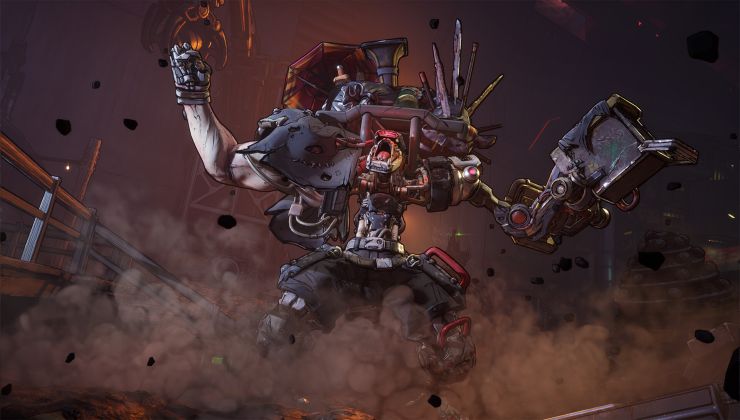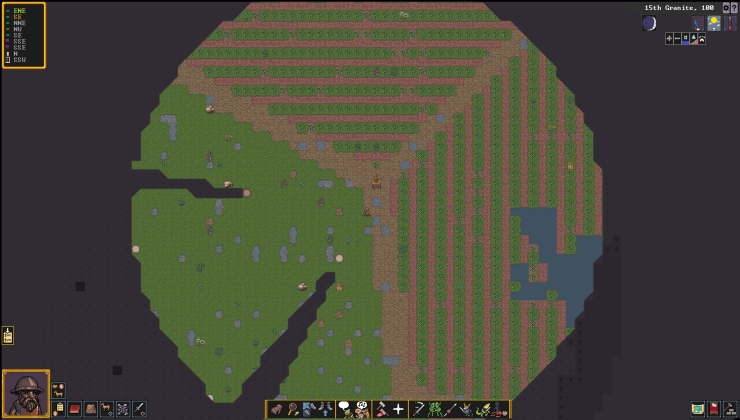Here we go once again, EA are about to completely break another game on Steam Deck and Desktop Linux and this time it's Battlefield 1. Originally released back in 2016, it still sees some pretty good player numbers on Steam hitting a concurrent player peak of 15,117 in the last 24 hours.
In an official news post, which was recently updated, it now states that Battlefield 1 is set to get the kernel-mode anti-cheat and anti-tamper solution EA anticheat in September. This follows on from Battlefield 2042, Battlefield V, EA SPORTS WRC and Plants vs. Zombies Garden Warfare 2 that all added it after release. It's also in their EA SPORTS FC series, with it originally first rolling out in FIFA 23 and has since expanded to include the others.
The big problem is, EA don't support Linux platforms at all with EA anticheat and so games using it won't work at all on Steam Deck or Desktop Linux.

EA also recently did a separate post on August 22nd talking about EA anticheat noting is has "prevented nearly five million attempts (and counting!) to cheat in EA anticheat-protected games" and they make it clear they plan to add EA anticheat into more titles across "FY25" (the 2025 financial year).
What this does is just highlight a problem with buying multiplayer games that aren't explicitly said to be supported on your platform. Proton is incredible, it does enable tens of thousands of games to run on Steam Deck and Desktop Linux, but in times like this EA can just write it off without a bother. How? Well, it's not EA selling it to you saying it's supported to run their Windows game it via Proton.
It's also worth noting that Valve updated the Battlefield 1 Steam Deck rating from Playable to Unsupported 5 days ago. Still, no refunds will come for those who are outside the normal Steam refund policies, even if your primary way to play is a Linux-based platform and that stings to just have a broken game.
At this point, it's probably only a matter of time until Apex Legends gets EA anticheat. That one will really be a big issue, since it's one of the most popular games on Steam.
It's an interesting contrast with BioWare's Dragon Age: The Veilguard that EA publish, which is Steam Deck Verified ahead of release with the developers repeatedly mentioning it. But hey, it's not a multiplayer game.
Let's just hope Microsoft end up locking them out of kernel access, just to make this a complete waste of time and money, for EA.If only that same logic can be applied to all kernel anticheats from companies like Activision and Riot Games.
Last edited by ToddL on 27 Aug 2024 at 6:59 pm UTC
Next game's free for me, how about that EA? You steal I steal.
I have just looked through my Library to discover I actually own (unspecified time rentals) 35 EA games inc this one. I must of acquired these games during steam sales as I have not played most of them. Would Valve still consider a refund if not played after 14 days?. I will no longer be purchasing any games published under the EA umbrella going forward.
Anyway they better not break Dirt Rally as I have just opened a huge can of worms getting into "sim racing" and are discovering the many pitfalls in relation to hardware support on Linux. Would welcome any purchase advice regarding Wheels, Frames etc. I do have a Logitec G29 but looking for a DD solution.
If it weren't for me being so invested into the Sims, I would've ditched EA a long time ago. Same for Ubisoft...but damn I'm a big Splinter Cell fan...
Good thing I only cared about the Campaign mode on Battlefield 1 and finished that up after Battlefield V was infected with this POS anticheat.
Let's just hope Microsoft end up locking them out of kernel access, just to make this a complete waste of time and money, for EA.If only that same logic can be applied to all kernel anticheats from companies like Activision and Riot Games.
I was referring to a discussion that Microsoft just started where they announced their intent to lock third parties from kernel access, following the Cloudstrike debacle (Liam published something on the subject).
If Microsoft goes forward with this idea, all kernel level anticheats might become a thing of the past. It doesn't mean that these games will automatically run on Linux, but I really hope it happens nonetheless, the sooner, the better.
Welp, that's it, it was a good run.If the next one is anything like Battlefield 2042, which is multiplayer online without a campaign mode, then that'll save you the trouble of getting it in the first place.
Next game's free for me, how about that EA? You steal I steal.
Spoiler, click me
Last edited by hazukashiidesu on 27 Aug 2024 at 9:49 pm UTC
If Microsoft goes forward with this idea, all kernel level anticheats might become a thing of the past.
Unfortunately, it looks like this will go down the same path as when it happened years ago, where third party kernel rootkit authors will rightfully point out that Microsoft has an advantage if it kicks all other AV software off the kernel but its own.
Unless there's been developments on this that I missed?
If Microsoft goes forward with this idea, all kernel level anticheats might become a thing of the past.
Unfortunately, it looks like this will go down the same path as when it happened years ago, where third party kernel rootkit authors will rightfully point out that Microsoft has an advantage if it kicks all other AV software off the kernel but its own.
Unless there's been developments on this that I missed?
In fact, there could be this piece of info:
"Industry analysts believe that limiting kernel access where possible makes sense."
https://www.csoonline.com/article/3483641/crowdstrike-backs-microsofts-demand-for-reducing-kernel-level-access.html
For games, it's totally possible, imo, but I'm not Microsoft.
Let's just hope Microsoft end up locking them out of kernel access, just to make this a complete waste of time and money, for EA.
I guess that won't happen anytime soon (unless something EXTREMELY BAD happens, like a massive exploit and/or data breach), since -on purpose or not-, this allows M$ to gatekeep gaming and prevent desktop Linux and Linux-based handhelds to reach their maximum potential.
I'm starting to think maybe I shouldn't have jumped at these Battlefield sales...
I was tempted for a moment, but I expected this was coming, and the temptation passed.
Still, no refunds will come for those who are outside the normal Steam refund policies, even if your primary way to play is a Linux-based platform and that stings to just have a broken game.
My best friend got a refund for Rocket League after hundreds of hours of playing over the course of years, when Epic Games pulled Linux support and sucked it into their Fortnite monolith. So it's not impossible. Just unlikely.
Actually this really is a bummer.. I've got a few workmates I join for early saturday morning BF1(only time we all have available anymore with kids and all), maybe we'll find another game, but I'm going to miss how it is now.
A lot of the DICE developers who worked on BF1 left to go make THE FINALS, it's more of a TF2/Apex like shooter but it's worth trying and I see a lot of Battlefield fans getting into it. Just beware the bugs... lots of them...
There's also indie projects like Battlebit Remastered which is more directly inspired by Battlefield and has anticheat support whitelisted on Linux.
Last edited by bonkmaykr on 28 Aug 2024 at 5:22 am UTC
If Microsoft goes forward with this idea, all kernel level anticheats might become a thing of the past.
Unfortunately, it looks like this will go down the same path as when it happened years ago, where third party kernel rootkit authors will rightfully point out that Microsoft has an advantage if it kicks all other AV software off the kernel but its own.
Unless there's been developments on this that I missed?
In fact, there could be this piece of info:
"Industry analysts believe that limiting kernel access where possible makes sense."
https://www.csoonline.com/article/3483641/crowdstrike-backs-microsofts-demand-for-reducing-kernel-level-access.html
For games, it's totally possible, imo, but I'm not Microsoft.
What Crowdstrike proposes in that article it was already doing and how it took all those systems offline.
Doing your basic stuff with the heavily regulated kernel driver and using user space material to do the actual evaluation.











 How to set, change and reset your SteamOS / Steam Deck desktop sudo password
How to set, change and reset your SteamOS / Steam Deck desktop sudo password How to set up Decky Loader on Steam Deck / SteamOS for easy plugins
How to set up Decky Loader on Steam Deck / SteamOS for easy plugins
See more from me